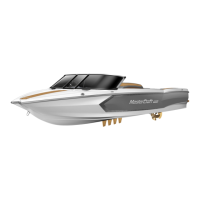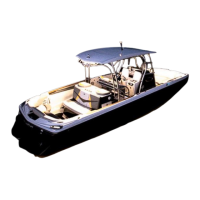Accident Reporting
Federal law requires the boat operator to file a boating accident
report with the state reporting authority when, as a result of an
occurrence that involves a boat or its equipment:
• A Person dies
• A Person disappears from the vessel under circumstances
that indicate death or injury
• A Person is injured and requires medical treatment beyond
first aid
• Damage to vessels and other property totals $2,000
or more (the amount may be lower in some states and
territories; verify with local boating authorities)
• The Boat is destroyed
If the boat operator is deceased or unable to make the report,
the boat owner is required to le the report.
Your responsibility does not end with your own craft. You are
required by law to respond to any distress signal, visual or
auditory. Render immediate assistance, EXCEPT in instances
in which you and your passengers will be endangered or those
situations that exceed your capabilities or the capabilities of
your boat. Good Samaritan protection is provided to boaters
who provide good faith assistance and protects them from civil
liability for assistance given.
Speeding and Noise
Some states and boating areas have imposed speed limits for
operation of boats, including but not limited to no-wake zones.
Noise regulations may also be imposed. It is the responsibility
of the boat operator to be familiar with any and all laws and
regulations and to obey them. The U.S. Coast Guard is an
excellent source for this information, including penalties for
failure to observe the requirements.
Radios—Telephones
Improper use of a radio-telephone is a criminal offense.
The use of obscene, indecent or profane language during
radio communications is punishable by up to a $10,000 fine,
imprisonment for two years or both. Other penalties exist
for misuse of a radio, such as improper use of Channel 16
VHF-FM, a calling and distress channel. It is not to be used for
conversation or radio checks. Such communications should be
conducted on an authorized channel.

